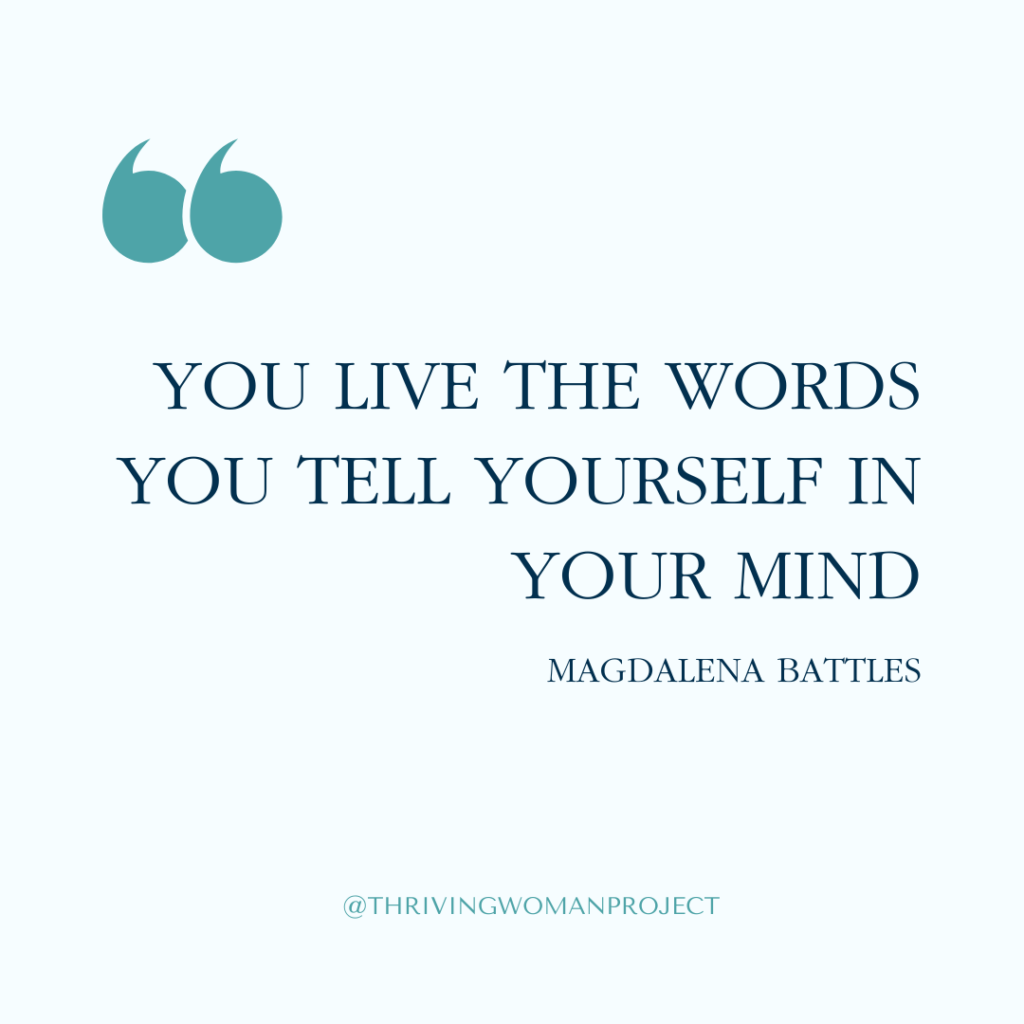In times of extreme stress much, we naturally gravitate to more negative instead of positive self-talk or dialogue. We forget how powerful our words and thoughts are. Our words manifest into reality and now more than ever we have to be kind to ourselves, speak kindly to ourselves, think kindly about ourselves and act kindly towards others.
I often wonder why we speak to ourselves the way we do when we would never speak to our children, family or friends the same way.
And we would never wish negative thoughts on anyone either.

Over the years I have worked very hard to change my mindset and learned how to speak to myself in a more positive way. I’m learning to show myself the same kindness I would show others.
Through this journey, I discovered two things I want to share with you.
The results of the below two practices have had a profound effect on my life including: reduced stress and anxiety, better physical and mental wellbeing, more energy, and more satisfaction in my life. And I’d love for you to experience the same!
1. Positive self-talk
Learning to change your inner dialogue takes a little practice (I’m still learning, practicing and doing my best).
First, you need to identify your negative self-talk and thoughts. You can do this by checking yourself.
Things to look for:
- Blaming yourself for most things
- Looking at negative aspects of a situation without recognising the positive
- Always expecting the worst
- Being quite polarised in your thoughts, right and wrong, black and white and not much middle ground or grey area
How to shift your mindset
- Once you have recognised the negative thoughts, you’re halfway there. Recognising, acknowledging and identifying how you feel is really important. This step alone can be so empowering and halt the negative dialogue. But once you’ve identified the negative talk, then you can think of an alternative, even if you don’t believe it just yet, think it, rephrase it, reword it and put a positive spin on it.
- Also, check yourself in situations which have a negative effect on you. Maybe it’s in a mums and tots group where you feel a bit insecure or during work events… This will allow you to mentally prepare for these situations.
- A big one for me is surrounding myself with positive people. This has such a knock-on effect. There is definitely merit in positivity rubbing off on you.
- Use positive affirmations and place positive quotes around your home (bathroom mirror, on your Friday) and work place.
Remember positive self-talk doesn’t have to be unbelievable; it’s about rephrasing your thoughts to be more positive.
Eg: “I am enough.” or “I’m healing.” or “I’m stronger than I feel.”
Your mind will always believe everything you tell it. Feed it hope. Feed it truth. Feed it love.
Book recommendation: What to Say When you Talk to Yourself – Shad Helmstetter Ph.D. ( I found this book central to my progress in positive self-talk)
2. Afformations (as positive self-talk)
Not affirmations, afformations.
We all know what affirmations are and we’ve all probably given it a go and chanted one of the below to ourselves:
“I am fit.” “or “I am happy.” and my favourite “I am rich.”
However, the problem with affirmations is that our brains can immediately respond with negativity, eg, “No, I’m not.”
So what does this have to do with afformations?
Our brains are trained to find solutions and so the premise behind afformations is to ask yourself questions designed to changed your subconscious to support you in making it a reality.
The Author of “The book Afformations”, Noah St John says this:
“If human thought is the process of asking and searching for answers to questions, why are we going around making statements we don’t believe? I somehow knew that if we started asking ourselves better questions instead of saying statements we didn’t believe, it would change everything…
When you ask a question, your mind automatically begins to search for an answer. Empowering questions unleash your ability to take action. The answers to empowering questions produce feelings of positive self-worth and ultimately lead to answers that tell the truth about Who You Really Are.”
Incorporate some of these in your life and just like most things, remember that change takes time, so be gentle on yourself and give yourself the permission to be kind to yourself.
Afformations you can try:
WHY…
- do I have a family that loves me so much?
- am I worthy of fulfilment?
- am I such a good mum?
- do I look so good in these clothes?
- am I so healthy at the moment?
- do I love my work?
We are all a work in progress but as we become more conscious of our mental health and it becomes less of a “taboo” subject, so can we recognise in ourselves how we can support and show kindness to ourselves.
“Go above and beyond for yourself! You do it for family, friends, and colleagues, but don’t forget about YOU. It’s important to include yourself… You are worthy of your own kindness, too!” – Stephanie Lahart